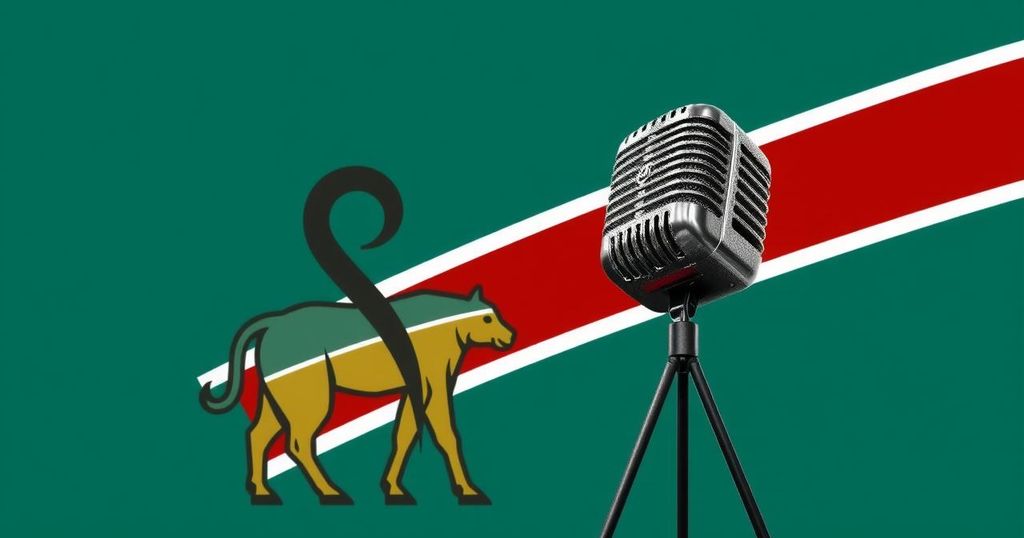Botswana’s President Mokgweetsi Masisi has conceded defeat in the recent election, which saw the ruling Botswana Democratic Party (BDP) lose its parliamentary majority after nearly sixty years in power. Preliminary results indicate that the opposition coalition, Umbrella for Democratic Change (UDC), is on track to secure the presidency. Masisi expressed his acceptance of the election results and pledged support for the incoming administration. This election marks a historical shift in Botswana’s political landscape, challenging the BDP’s longstanding dominance amid economic pressures.
Botswana’s President Mokgweetsi Masisi has formally acknowledged his defeat in the recent election, where preliminary results indicate that his party, the Botswana Democratic Party (BDP), has lost its parliamentary majority for the first time in nearly sixty years. Reports from both the private Mmegi newspaper and state radio suggest that the BDP suffered a significant loss, based on results from over half of the constituencies, with the opposition coalition, Umbrella for Democratic Change (UDC), leading the charge. The UDC’s leader, Duma Boko, is projected to assume the presidency, although he has yet to issue a public statement regarding the election outcome. At a post-election press conference, President Masisi conveyed his acceptance of the election results, stating, “Although I wanted to stay on as your president, I respect the will of the people and I congratulate the president-elect. I will step aside and I will support the new administration.” This concession is noteworthy, as it marks a pivotal shift in Botswana’s political landscape, with the BDP having governed since the nation’s independence from Britain in 1966. Early election analyses suggested a competitive race; however, the BDP was anticipated to retain power. As reported by Mmegi, results from 36 of the 61 constituencies indicated that the opposition secured over half of the parliamentary seats necessary to elect the next president, while the BDP managed to secure only one constituencies. A majority in the Parliament requires a party to win 31 constituencies, a threshold now surpassed by the UDC, who captured 25. Botswana has historically enjoyed stability and prosperity, largely attributed to its diamond wealth and small population, which benefits from free healthcare and education. As the leading global producer of diamonds by value, the nation has faced economic challenges in recent years due to a downturn in the diamond market, revealing an urgent need to diversify its economic base.
The recent elections in Botswana mark a significant turning point in the country’s political history, ending the Botswana Democratic Party’s longstanding rule that has persisted since its independence in 1966. The BDP has been a dominant force in Botswana’s political framework, known for maintaining stability and promoting socioeconomic advancements facilitated by diamond revenues. However, in light of recent electoral results indicating a shift in voter sentiment, analysts point to a response to growing economic challenges, particularly following fluctuations in the diamond market that have pressured the nation’s revenue flow. This election serves as a critical juncture, reflecting the electorate’s desire for change and agility in addressing the country’s future economic trajectory.
In conclusion, the concession of President Mokgweetsi Masisi signals a remarkable change in Botswana’s political landscape. The substantial electoral losses experienced by the Botswana Democratic Party, after a formidable six-decade reign, underscore a shift in public sentiment driven by economic pressures and the pursuit of greater accountability from new political leadership. The upcoming administration under Duma Boko’s guidance may provide an opportunity for renewed efforts toward economic diversification and sustainable development in Botswana.
Original Source: www.theguardian.com






